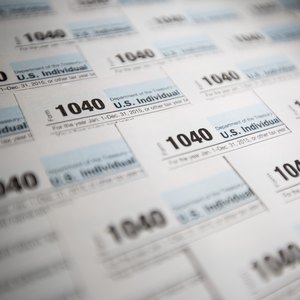
The IRS requires dependents, even minor children, to file a federal income tax return if their income is above a certain level. If you have a young child with income, there are several IRS rules to be aware of, especially related to filing a return for your child, declaring your child’s income on your return and allowed exemptions.
Tips
The IRS has very strict rules regarding claiming dependents. Ensure that your dependent meets all necessary qualifications as described on the official IRS website before claiming them on your tax return in order to avoid penalties.
Do Parents Need to File for Children?
Children who have earned or unearned income are legally responsible for signing and filing their own tax returns. If a child is too young to file, then the parent is responsible. Parents who don’t file on behalf of their dependent child risk having the child deficient on their taxes and even be subject to auditing. In this case, a parent needs to contact the IRS to let them know they have authority over the child’s income. The IRS will work with parents once they have been notified.
When Does a Dependent Need to File?
IRS Publication 929, Tax Rules for Children and Dependents, defines the levels of income required before a dependent needs to file a tax return. A big red flag for an IRS audit would be failing to report all of a dependent’s income. According to the 2017 version of Publication 929, single dependents under age 65 who are not blind must file a return when their gross earned income is greater than $6,350. If the dependent’s income is unearned, such as from interest or dividends, a tax return is required for gross income exceeding $1,050. There are separate levels for dependent’s whose income is a mix of unearned and earned.
Including a Dependent’s Income on Your Return
There is currently only one exception to the rule that a dependent must file their own return, or have a parent or guardian file it in the case of a minor child. If the child’s unearned income from interest and dividends is less than $10,500, then the parent has the option of including the income on their return. This applies for biological and adopted children as well as stepchildren. If the child’s parents are married but filing separate returns, then the parent with the greatest income should include the child’s unearned income on their return. Publication 929 provides different rules for who files in the case of parents who are divorced, unmarried or widowed and remarried. Not following these rules could be a red flag for an audit.
No Exemption on Dependent’s Return
The IRS does not allow a dependent to take a personal exemption on their tax return if they qualify as a dependent on someone else’s return, such as a parent. Taking this exemption could be a flag for audit, especially if the parent also took a dependent exemption. Even if the parent doesn’t take the exemption, the IRS does not allow the personal exemption.
References
- IRS: About Publication 929, Tax Rules for Children and Dependents
- IRS: About Publication 501, Exemptions, Standard Deduction, and Filing Information
- IRS: Filing Requirements, Status, Dependents, Exemptions
- IRS. "Qualifying Child of More Than One Person." Accessed Oct. 20, 2020.
- IRS. "Publication 504 (2019): Divorced or Separated Individuals." Page 8. Accessed Oct. 20, 2020.
- IRS. "Be Tax Ready – Understanding Tax Reform Changes Affecting Individuals and Families." Accessed Oct. 20, 2020.
- IRS. "Publication 501 (2019): Dependents, Standard Deduction, and Filing Information." Pages 8-9. Accessed Oct. 20, 2020.
- IRS. "Form 8332: Release/Revocation of Release of Claim to Exemption for Child by Custodial Parent." Page 2. Accessed Oct. 20, 2020.
- U.S. Government Publishing Office. "Title 26 - Internal Revenue Code: § 6103(a), Confidentiality and Disclosure of Returns and Return Information." Pages 3158-3160. Accessed Oct. 20, 2020.
- IRS. "Instructions for Requesting Copy of Fraudulent Returns." Accessed Oct. 21, 2020.
- IRS. "What to Do When Someone Fraudulently Claims Your Dependent." Accessed Oct. 21, 2020.
Writer Bio
Catie Watson spent three decades in the corporate world before becoming a freelance writer. She has an English degree from UC Berkeley and specializes in topics related to personal finance, careers and business.
